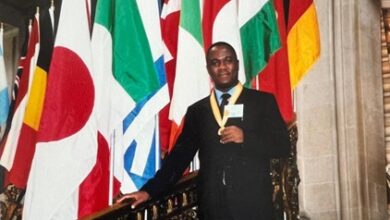Common hurdles of international entrepreneurship and how to overcome them

In line with the E2E International 100 list launching for 2024, Champions (UK) plc, E2E’s strategic partner and multi-award-winning business solutions partner, specialising in delivering EBITDA and capital value growth for clients, shares some insights into navigating international business growth and activity, along with some advice on how to overcome the challenges business owners may face along the way.
“As the landscape of global entrepreneurship continues to evolve, business leaders face unique challenges when expanding operations across borders,” says Matthew Hayes, Managing Director of Champions. “From navigating regulatory landscapes to managing transformational change programmes, the journey of international entrepreneurship demands strategic expertise and innovative solutions”.
New mindsets
Caspar Craven, Change Mindset Lead at Champions, emphasises the need for entrepreneurs to adopt new mindsets and techniques tailored for international markets.
“I truly believe we can’t navigate a new world using an old set of charts, and the most important set of charts we need to revisit are the ones in our minds. It’s about paying attention to our mental models which is where I see ambitious leaders gain a competitive edge.
“In speaking with and studying leaders who exhibit what I call The Big Bold Mindset®, I’ve noticed some defining characteristics. Of the many traits, some of the most impactful ones are three which I’ve framed as questions to reflect on:
“How curious are you as to what’s changing in each region you operate in?
“How many experiments do you run each week per region?
“How often do you say “I’m right’ vs “How do I know I’m right?”
“When it comes to driving a business overseas, being a relentless learner will be the best mindset to adopt. The rules of the game continue to change, and the winners will be those who learn the fastest.”
Multi culture focus
Emma Tolhurst, Strategic Head of People at Champions, adds insights on the importance of cultural readiness in international expansion. “Being multi culture ready as a small business or growing your business with a multi culture focus should be done with understanding and input from the specific countries you are moving into.
“For example, how people work and connect across time-zones can put huge pressures on the business infrastructure, the expectation of working hours and ways of working need to be aligned and expectations set.
“Having a core set of values to align to and then taking a ‘glocal’ approach to these will make the difference and mean your retention rates will be higher, you’ll receive a higher percentage of talent referrals, and you’ll have the ability to scale in key locations with the correct foundations for growth.”
Matthew emphasises the critical role of experience and expertise in sales and finance for running a business internationally: “Entrepreneurs must possess a deep understanding of global markets, including diverse consumer behaviours and financial regulations.
“This knowledge enables businesses to tailor sales and financial strategies that resonate with international audiences and comply with local laws.”
A holistic approach
Matthew also highlights the importance of strategic partnerships with Non-Executive Directors (NEDs) and delivery partner agencies in expanding into new territories: “Expansion into new territories often requires strategic partnerships with NEDs and agencies with extensive international business experience. These collaborations bring invaluable insights into market entry strategies, regulatory compliance, and operational efficiency, significantly accelerating international growth while mitigating associated risks.”
Commenting on the complexities of international entrepreneurship, Matthew states: “Navigating the nuances of global business demands a holistic approach.
“We’ve learned that embracing change, leveraging specialised expertise, and forming strategic alliances are instrumental in overcoming international business hurdles.”



